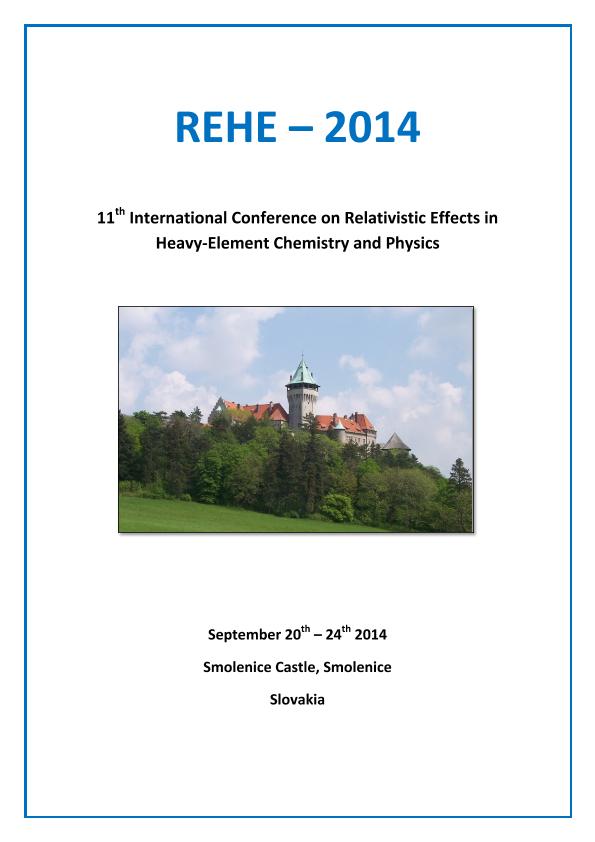Evento
Theoretical study of the relativistic molecular rotational g-tensor
Ruiz de Azua, Martín César ; Aucar, Ignacio Agustín
; Aucar, Ignacio Agustín ; Gomez, Sergio Santiago; Giribet, Claudia Gloria
; Gomez, Sergio Santiago; Giribet, Claudia Gloria
 ; Aucar, Ignacio Agustín
; Aucar, Ignacio Agustín ; Gomez, Sergio Santiago; Giribet, Claudia Gloria
; Gomez, Sergio Santiago; Giribet, Claudia Gloria
Tipo del evento:
Conferencia
Nombre del evento:
11th International Conference on Relativistic Effects in Heavy-Element Chemistry and Physics
Fecha del evento:
20/09/2014
Institución Organizadora:
Slovak Academy of Sciences;
Comenius University in Bratislava;
Slovak University of Technology in Bratislava;
Título del Libro:
11th International Conference on Relativistic Effects in Heavy-Element Chemistry and Physics
Editorial:
Slovak Academy of Sciences
ISBN:
978-80-971648-1-2
Idioma:
Inglés
Clasificación temática:
Resumen
An original formulation of the relativistic molecular rotational g-tensor valid for heavy atom containing compounds is presented. In such formulation the relevant terms of a molecular Hamiltonian for non relativistic nuclei and relativistic electrons in the laboratory system are considered, including electron-nucleus Breit interaction effects. Terms linear and bilinear in the nuclear rotation angular momentum and an external uniform magnetic field are considered within first and second order (relativistic) perturbation theory to obtain the rotational g-tensor. Relativistic effects are further analyzed by carrying out the linear response within the elimination of the small component (LRESC) expansion. Quantitative results for model systems HX (X = F, Cl, Br, I), XF (X = Cl, Br, I) and YH+ (Y = Ne, Ar, Kr, Xe, Rn) are obtained both at the RPA and DFT levels of approximation. Relativistic effects are shown to be small for this molecular property. The relation between the rotational g-tensor and susceptibility tensor which is valid in the non relativistic theory does not hold within the relativistic framework, and differences between both molecular parameters are analyzed for the model systems under study. It is found that the non relativistic relation remains valid within 2% even for the heavy IH, IF and XeH + systems. Only for the sixth-row Rn atom a significant deviation of this relation is found.
Palabras clave:
G-TENSOR
,
RELATIVISTIC EFFECTS
,
QUANTUM CHEMISTRY
Archivos asociados
Licencia
Identificadores
Colecciones
Eventos(IMIT)
Eventos de INST.DE MODELADO E INNOVACION TECNOLOGICA
Eventos de INST.DE MODELADO E INNOVACION TECNOLOGICA
Citación
Theoretical study of the relativistic molecular rotational g-tensor; 11th International Conference on Relativistic Effects in Heavy-Element Chemistry and Physics; Smolenice; Eslovaquia; 2014; 12-12
Compartir



